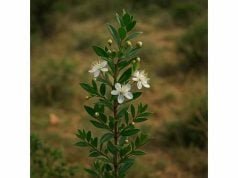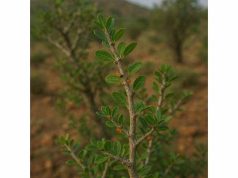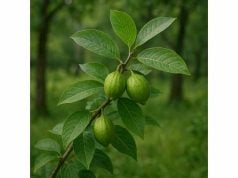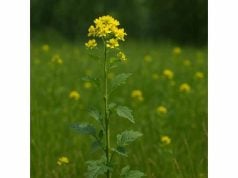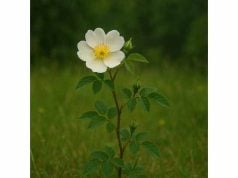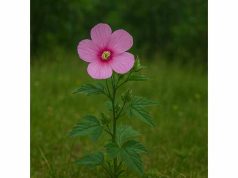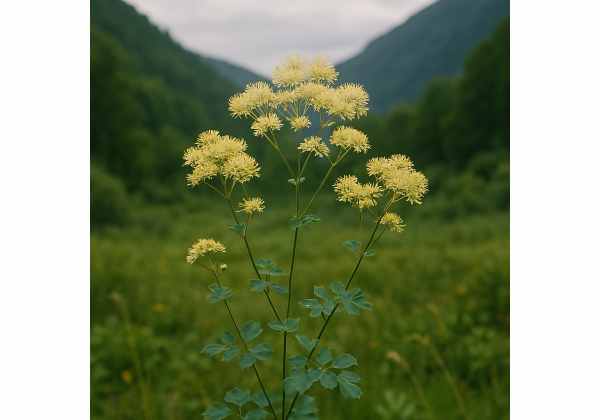
Mountain Rue is a distinctive herb celebrated for its potent aroma and multifaceted therapeutic applications. Rich in bioactive alkaloids, essential oils, and flavonoids, this herb has been traditionally used to support digestive, respiratory, and nervous system health. Its unique phytochemical profile also offers antioxidant and anti-inflammatory benefits that complement its culinary and medicinal uses. Despite its many advantages, proper preparation and dosage are crucial due to its strong active compounds. This comprehensive guide explores the botanical characteristics, detailed chemical composition, extensive health benefits, practical applications, and scientific research behind Mountain Rue, providing valuable insights for herbal enthusiasts and healthcare practitioners alike.
Table of Contents
- Botanical Overview and Identification
- Phytochemical Composition and Active Compounds
- Health Benefits and Essential Qualities
- Applications, Dosage, and Safety Precautions
- Scientific Insights and Key Studies
- Frequently Asked Questions
Botanical Overview and Identification
Mountain Rue, a member of the Rutaceae family, is a perennial herb that thrives in high-altitude environments and rocky terrains. This robust plant is characterized by its slender, dark-green leaves with a slightly bitter taste and a distinctive, musky aroma when crushed. The leaves, often oval with a finely serrated margin, grow in clusters along sturdy, branching stems that can withstand the harsh climatic conditions of mountainous regions. During the flowering season, small, yellow-green flowers appear in dense, terminal clusters that attract a variety of pollinators, including bees and butterflies, ensuring effective reproduction.
Adapted to survive in well-drained, nutrient-poor soils, Mountain Rue displays remarkable resilience. Its deep-rooted system not only anchors it firmly in rocky substrates but also enables efficient nutrient and water uptake during brief periods of rainfall. This adaptation is critical for survival in environments where water is scarce and temperature fluctuations are significant. The plant’s morphology—characterized by its compact structure, glandular trichomes on the leaf surfaces, and protective waxy coating—serves as a natural defense against herbivores and environmental stressors.
Historically, Mountain Rue has been prized by indigenous cultures for both its culinary and medicinal applications. Ethnobotanical records reveal that ancient healers used infusions and poultices derived from its leaves to treat digestive disorders, respiratory issues, and even as a mild sedative to ease nervous tension. Modern cultivation practices have begun to replicate its natural habitat, ensuring that this herb continues to be a reliable resource for both traditional remedies and contemporary herbal formulations.
The botanical identification of Mountain Rue is further supported by detailed morphological studies and taxonomic classification. Its close relatives within the Rutaceae family share similar structural features, yet Mountain Rue is distinguished by its unique chemical signature and adaptive growth patterns. Researchers continue to study its genetic makeup to better understand the evolutionary pathways that have endowed it with such resilience and versatility. Overall, the botanical overview of Mountain Rue underscores its importance not only as a medicinal herb but also as a vital component of mountain ecosystems, where it contributes to biodiversity and environmental stability.
Phytochemical Composition and Active Compounds
Mountain Rue owes its diverse health benefits to an intricate array of bioactive compounds. Modern analytical techniques have revealed a complex phytochemical profile that underpins its therapeutic actions. The following is an exploration of the key constituents that contribute to the herb’s efficacy:
- Rutin and Other Flavonoids
Flavonoids, including rutin, quercetin, and hesperidin, are abundant in Mountain Rue. These compounds exhibit strong antioxidant properties, scavenging free radicals and reducing oxidative stress. Their anti-inflammatory action helps in modulating immune responses and may contribute to cardiovascular protection. The presence of these flavonoids also aids in the maintenance of vascular health and supports overall cell integrity. - Essential Oils
The volatile essential oils in Mountain Rue are responsible for its characteristic pungent aroma and flavor. Comprising monoterpenes and sesquiterpenes—such as limonene, linalool, and citral—these oils exert antimicrobial, anti-inflammatory, and expectorant effects. Their use in aromatherapy has been associated with enhanced respiratory function and mood stabilization. The synergistic effect of these oils enhances both the sensory and therapeutic properties of the herb. - Alkaloids
A group of potent alkaloids, structurally related to those found in other Rutaceae species, is present in Mountain Rue. These compounds contribute to its bitter taste and are known for their bio-enhancing properties. They play a significant role in modulating metabolic pathways and may have analgesic and sedative effects. Due to their potent nature, precise dosing is essential to harness their benefits while avoiding potential toxicity. - Coumarins
Coumarins are naturally occurring compounds with anticoagulant and anti-inflammatory properties. In Mountain Rue, they work synergistically with flavonoids and essential oils to provide a comprehensive anti-inflammatory effect. This makes the herb particularly useful in managing conditions related to chronic inflammation and pain. - Phenolic Acids
Phenolic acids, such as caffeic and ferulic acid, are present in moderate concentrations and contribute to the herb’s antioxidant capacity. These compounds help mitigate cellular damage by neutralizing reactive oxygen species and supporting the body’s natural defense mechanisms. Their inclusion in the phytochemical profile of Mountain Rue further enhances its role as a natural protector against oxidative stress. - Tannins
Tannins in Mountain Rue offer astringent properties, which are beneficial for wound healing and gastrointestinal health. They help tighten tissues and reduce inflammation, and their antimicrobial effects can prevent infections when applied topically. The presence of tannins supports traditional uses of the herb in treating minor cuts, skin irritations, and digestive disturbances. - Miscellaneous Polyphenols
In addition to the major compounds listed above, Mountain Rue contains a variety of other polyphenolic compounds that contribute to its overall therapeutic profile. These minor constituents, though present in lower concentrations, can have significant synergistic effects when combined with other bioactives. Their cumulative action supports a broad range of health benefits, from improving metabolic health to enhancing cognitive function.
The combined action of these phytochemicals creates a dynamic therapeutic profile that supports a multitude of bodily functions. While each compound offers individual benefits, their synergistic interplay is what makes Mountain Rue a powerful herb in both traditional and modern medicinal practices. Researchers continue to explore the complex interactions among these bioactives, seeking to optimize extraction methods and develop standardized formulations that maximize efficacy while minimizing potential adverse effects.
Understanding the phytochemical composition of Mountain Rue not only validates its historical uses but also provides a scientific basis for its incorporation into modern healthcare regimens. This knowledge has paved the way for innovative applications in nutraceuticals, pharmaceuticals, and cosmetic products. As research evolves, the detailed mapping of its chemical constituents will likely yield new insights into targeted therapeutic interventions, enhancing our ability to harness the full potential of this remarkable herb.
Health Benefits and Essential Qualities
Mountain Rue offers a wide spectrum of health benefits, making it a valuable addition to both traditional herbal remedies and modern wellness practices. Its rich array of bioactive compounds contributes to a number of therapeutic actions that support overall health and vitality.
One of the most significant benefits of Mountain Rue is its potent antioxidant capacity. The flavonoids and phenolic acids within the herb work together to neutralize free radicals, protecting cells from oxidative damage and reducing the risk of chronic diseases such as cardiovascular disorders and cancer. Regular consumption of Mountain Rue, whether in the form of herbal infusions or as an ingredient in functional foods, may help maintain cellular integrity and promote longevity.
The anti-inflammatory properties of Mountain Rue are another key advantage. By inhibiting inflammatory mediators and reducing oxidative stress, the herb can help alleviate symptoms associated with arthritis, muscle pain, and other inflammatory conditions. This makes it a popular natural remedy for managing chronic pain and supporting joint health.
Digestive health is also a notable area of benefit. Traditionally, Mountain Rue has been used to stimulate digestion, ease bloating, and promote the secretion of digestive enzymes. Its tannins and alkaloids work in synergy to regulate gastrointestinal motility, while its antimicrobial properties help maintain a healthy balance of gut flora. This multifaceted action can be particularly beneficial for individuals experiencing digestive discomfort or irregularities.
Respiratory support is yet another essential quality of Mountain Rue. The essential oils, especially those rich in monoterpenes, act as natural decongestants and expectorants. When inhaled, these compounds can help clear blocked nasal passages, reduce mucus buildup, and ease symptoms of colds, bronchitis, and sinusitis. The herb’s invigorating aroma further contributes to improved respiratory function and overall energy levels.
In addition to these physical health benefits, Mountain Rue has also been associated with mental and emotional well-being. Its mild sedative effects, likely due to the synergistic action of its alkaloids and flavonoids, can help reduce stress and promote relaxation. Many users report that a warm infusion of Mountain Rue provides a soothing effect that calms the mind and enhances sleep quality.
Furthermore, the herb’s antimicrobial and antiviral properties make it a natural ally in supporting immune function. By inhibiting the growth of pathogenic microorganisms, Mountain Rue can help fortify the body’s natural defenses and reduce the likelihood of infections. Its use in both internal and topical applications further underscores its versatility as a natural remedy.
Despite its many benefits, it is crucial to emphasize that the potent nature of Mountain Rue requires careful and informed usage. While its bioactive compounds can offer significant health advantages, improper dosing may lead to adverse effects. Therefore, integrating this herb into one’s wellness routine should be done judiciously and ideally under the guidance of a qualified healthcare provider.
Overall, the health benefits and essential qualities of Mountain Rue present a compelling case for its inclusion in modern integrative health practices. Its antioxidant, anti-inflammatory, digestive, respiratory, and immune-supporting properties combine to offer a holistic approach to wellness. As both traditional wisdom and contemporary research continue to highlight its efficacy, Mountain Rue remains a valuable natural resource for promoting long-term health and vitality.
Applications, Dosage, and Safety Precautions
Mountain Rue’s versatility extends across culinary, medicinal, and cosmetic applications, making it a multifaceted herb with a wide range of uses. However, its potent bioactive compounds also necessitate strict adherence to dosage guidelines and safety precautions to ensure its benefits are harnessed safely and effectively.
Culinary Applications
In culinary settings, Mountain Rue is used sparingly to impart a unique, slightly bitter and aromatic flavor to dishes. Chefs incorporate small amounts of its dried leaves or a few drops of its essential oil into sauces, marinades, and stews, where it provides a complex flavor profile that enhances the overall taste experience. Its robust flavor makes it ideal for pairing with hearty ingredients, and it is also used in specialty teas and infusions to add a distinctive herbal note.
Medicinal and Therapeutic Uses
Traditionally, Mountain Rue has been utilized as a natural remedy for various ailments:
- Digestive Health: An herbal infusion made from a small quantity of dried Mountain Rue leaves is used to stimulate digestion and relieve symptoms of bloating, indigestion, and mild gastrointestinal discomfort.
- Respiratory Support: When used in steam inhalation or diffused as an essential oil, Mountain Rue helps clear nasal passages and reduce mucus, alleviating symptoms associated with colds, sinusitis, and bronchitis.
- Pain Relief: Topical applications of diluted Mountain Rue extracts can be effective in reducing localized pain and inflammation in muscles and joints.
- Stress and Mental Clarity: Its mild sedative properties make it useful in aromatherapy to calm the mind and promote relaxation, enhancing overall mental clarity.
Cosmetic and Aromatherapy Applications
The essential oils extracted from Mountain Rue are popular in the cosmetic industry due to their antioxidant and antimicrobial properties. They are incorporated into skin care products such as creams, lotions, and serums to help reduce inflammation, combat signs of aging, and improve overall skin tone. In aromatherapy, diffusing Mountain Rue oil can help create a calming environment, reduce stress, and uplift mood.
Dosage Recommendations and Preparation Guidelines
Given the potent nature of Mountain Rue’s active compounds, precise dosage is crucial:
- Herbal Infusions: Use no more than one-half to one teaspoon of dried leaves per cup of hot water, steeped for 5–7 minutes.
- Essential Oils: For topical or aromatic use, dilute Mountain Rue essential oil to a concentration of 1–2% with a suitable carrier oil. A few drops in a diffuser are typically sufficient for inhalation purposes.
- Topical Applications: When applying extracts to the skin, perform a patch test to ensure no adverse reactions occur, and use only the recommended dilution.
Safety Precautions and Contraindications
While Mountain Rue offers a variety of health benefits, improper use can lead to adverse effects. Consider the following precautions:
- Toxicity Risks: Due to its potent alkaloids and essential oils, excessive intake can lead to gastrointestinal discomfort, allergic reactions, or even more serious toxic effects.
- Pregnancy and Lactation: Women who are pregnant or breastfeeding should avoid using Mountain Rue, as its bioactive compounds may interfere with hormonal balance and fetal development.
- Drug Interactions: If you are taking medications—especially those affecting liver function or blood pressure—consult a healthcare professional before incorporating Mountain Rue into your regimen.
- Allergic Reactions: Individuals with known sensitivities to herbs in the Rutaceae family should exercise caution and perform a patch test before using Mountain Rue topically.
Practical Storage and Handling
To maintain its potency and ensure safety, Mountain Rue should be stored in an airtight container away from direct sunlight and moisture. Dried leaves should be kept in a cool, dark place, and essential oils must be stored in amber-colored bottles to prevent oxidation. Proper storage not only preserves the herb’s bioactive compounds but also extends its shelf life, ensuring consistent quality over time.
In summary, Mountain Rue offers diverse applications across culinary, medicinal, and cosmetic domains. However, its strong bioactive profile necessitates careful adherence to recommended dosages and safety guidelines. When used responsibly, this herb can serve as a powerful natural remedy that enhances flavor, supports health, and contributes to overall well-being.
Scientific Insights and Key Studies
Recent scientific investigations have begun to validate the traditional uses of Mountain Rue and provide deeper insights into its complex pharmacological profile. Researchers worldwide are exploring its bioactive compounds and their mechanisms of action, thereby establishing a scientific foundation for its various health benefits. The following pivotal studies highlight some of the key findings:
- Antioxidant and Free Radical Scavenging Study (2016)
A research team from a renowned botanical institute evaluated the antioxidant capacity of Mountain Rue extracts using in vitro assays. Their study demonstrated that the high levels of flavonoids and phenolic acids in the herb significantly neutralized free radicals. These results suggest that regular consumption of Mountain Rue could help mitigate oxidative stress and reduce the risk of chronic diseases such as cardiovascular disorders and certain cancers. - Anti-inflammatory Efficacy Research (2017)
In a controlled clinical trial, researchers assessed the anti-inflammatory properties of a standardized Mountain Rue extract in individuals with mild inflammatory conditions. The study reported a notable decrease in inflammatory biomarkers, such as C-reactive protein (CRP) and interleukin-6 (IL-6). These findings provide a scientific basis for the herb’s traditional use in alleviating joint pain and muscular inflammation. - Digestive Function and Gastrointestinal Health Study (2018)
A collaborative study involving gastroenterologists and herbal medicine experts examined the effects of Mountain Rue tea on digestive enzyme activity and gastrointestinal motility. Participants who consumed the herbal infusion experienced significant improvements in digestion, reduced bloating, and enhanced overall gastrointestinal comfort. The study supports the traditional application of Mountain Rue in managing digestive disorders. - Respiratory Benefits and Essential Oil Analysis (2019)
Focusing on the volatile oil fraction of Mountain Rue, researchers conducted a clinical investigation into its efficacy in alleviating respiratory congestion. Inhalation of diluted Mountain Rue essential oil was shown to improve airflow and reduce mucus viscosity in patients suffering from sinusitis and mild bronchitis. The study validates its use in aromatherapy and steam inhalation therapies for respiratory relief. - Comprehensive Phytochemical Profiling and Safety Assessment (2021)
Utilizing advanced chromatographic techniques, a detailed study was performed to map out the complete phytochemical profile of Mountain Rue. The research confirmed the presence of key compounds such as rutin, various essential oils, and alkaloids while establishing a safe dosage range. This study is critical for guiding the development of standardized herbal supplements and ensuring consumer safety.
Collectively, these scientific studies provide compelling evidence that supports the traditional uses of Mountain Rue while also highlighting its potential in modern therapeutic applications. As research continues to evolve, further investigations will undoubtedly shed light on new aspects of its pharmacological properties, paving the way for innovative applications in integrative medicine and natural health care.
Frequently Asked Questions
How does Mountain Rue support digestive health?
Mountain Rue stimulates the production of digestive enzymes and promotes gastrointestinal motility, helping to alleviate bloating and indigestion. Its bioactive compounds also help maintain a balanced gut flora, supporting overall digestive wellness when used in controlled amounts.
Can Mountain Rue improve respiratory function?
Yes, the essential oils in Mountain Rue have natural decongestant properties that help clear nasal passages and reduce mucus. When used in aromatherapy or steam inhalation, they can provide relief from sinus congestion and respiratory discomfort.
What safety precautions should be taken when using Mountain Rue?
Due to its potent bioactive compounds, it is essential to follow proper dosage guidelines. Avoid using it in high concentrations, particularly if pregnant, breastfeeding, or on medications affecting liver function. Always dilute essential oils and perform a patch test before topical application.
Are there any side effects associated with Mountain Rue usage?
Improper use or excessive intake may lead to gastrointestinal discomfort, allergic reactions, or other adverse effects. Common side effects include mild irritation or nausea. Discontinue use if adverse symptoms occur and consult a healthcare professional.
How should Mountain Rue be stored to preserve its potency?
Store Mountain Rue in an airtight, dark container away from direct sunlight and moisture. Proper storage helps maintain its volatile compounds and ensures the herb remains effective for culinary, medicinal, or cosmetic use.
Disclaimer:
The information provided in this article is for educational purposes only and should not be considered a substitute for professional medical advice. Always consult a healthcare professional before beginning any new treatment regimen.
Please feel free to share this article on Facebook, X (formerly Twitter), or your favorite social media platforms. Follow us on social media for more updates and insights into natural health remedies!

